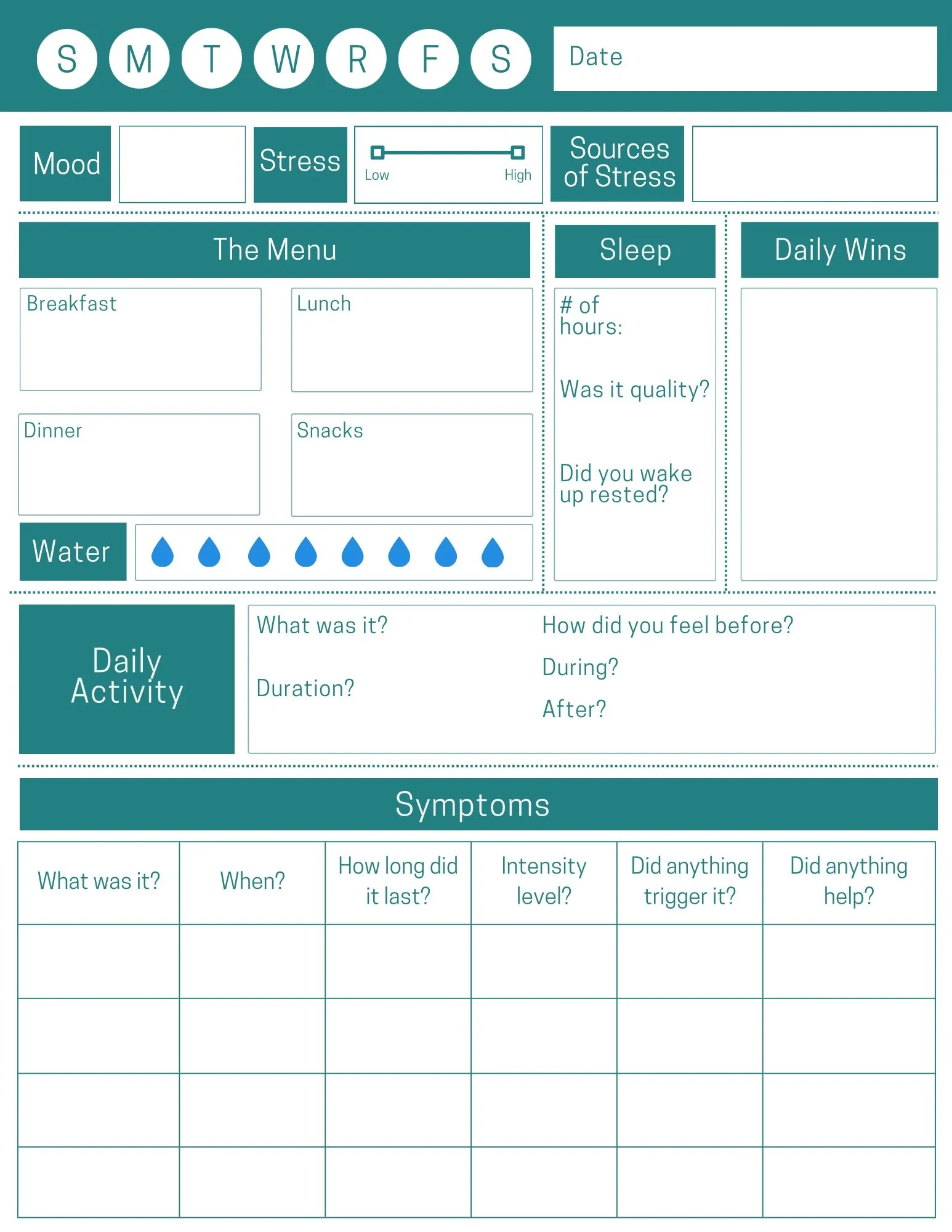Tracking How you feel
I have always been drawn to science. (For the record I know that is a random opening sentence, but just keep reading).
Science satisfies my curiosity and desire to explore but also supports doing it in a controlled way, which makes my little type A heart sing. In experiments, you are taught to control the variables and only change one thing at a time to minimize the likelihood of skewing your results.
Now you may be asking how in tf does this apply to chronic illness…
Living well with chronic illness is a fine dance. There are so many variables that can affect how you feel each day, some under your control, some are not.
The sheer magnitude of things that can affect your body can be overwhelming, especially when newly diagnosed. All of a sudden there are SO MANY MORE things you have to pay attention to and you have to start to get to know your body with an illness.
Why Tracking is Helpful
This is where science comes into play. Think about it, there is a new and not yet understood situation (aka your body with an illness). What does science do when faced with an unknown? It gathers data, forms a hypothesis, and tests it.
That’s exactly what you can do with a chronic illness. It’s helpful because the more data you collect and hypotheses you test, the more you learn how different variables (that are within your control) affect how your body feels.
*The key is ‘variables within your control’. The data collected focuses on things that you have the power to shift, because believe it or not, you DO have control when living with a chronic illness (albeit not as much control as you may like).
If you want to give this a shot, you can download the template below. It will help you track how much sleep you get, your stress levels, what you eat, your activity level, and what symptoms are making themselves known that day.
Click the image of the tracker below to access it on Google Drive, then you can download it from there.
Just fill it out each day (and be honest, there is no judgment here). After you have a couple weeks of data go back through and look for patterns.
Maybe you notice if you don’t get enough sleep or if you are extra stressed your cognitive functioning goes out the window. Or, when you eat a lot of dairy or gluten you are more fatigued.
Ya never know what you will find, but I can guarantee that knowledge is power in this situation. The more you know the better life you can live with chronic illness.
That said, remember this is not 100%, there are variables that are outside of your control too, which means that you may be doing everything ‘right’ and still have symptoms. The goal here is to understand how different variables within our control affect our bodies, thus giving us the freedom and power to make choices that set us up for living our best lives (even with illness in tow).
One Final Word
I mentioned earlier about being honest when tracking, but I want to reinforce that there is no judgment here, if you fib on your log sheet, you are just cheating yourself out of understanding your body as best as possible. And, this is not meant to create a new obsession with meticulously controlling these variables, so if you know that tracking is a slippery slope for you then don’t do it. This is merely a suggestion of a tool that you can add to your chronic illness toolbox.

